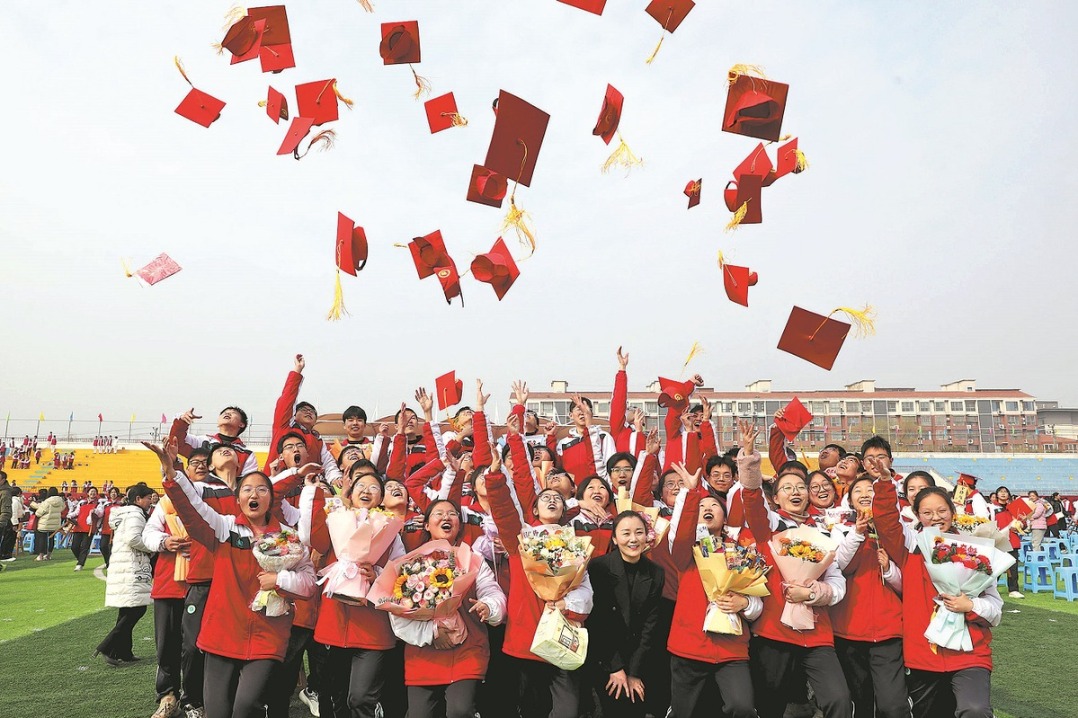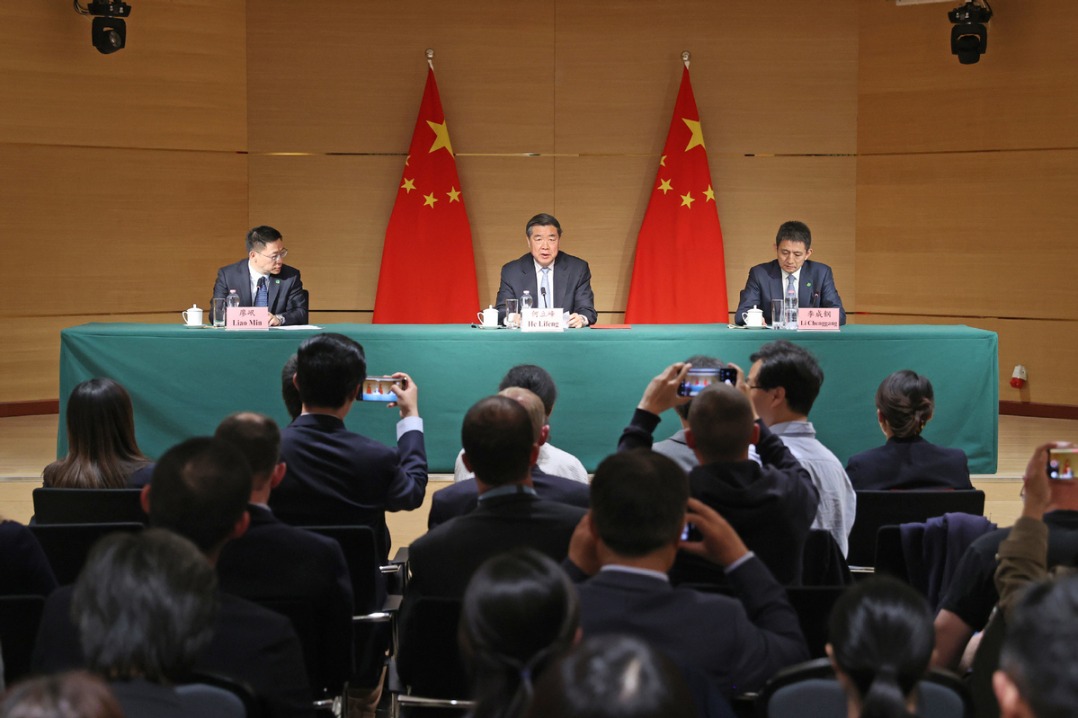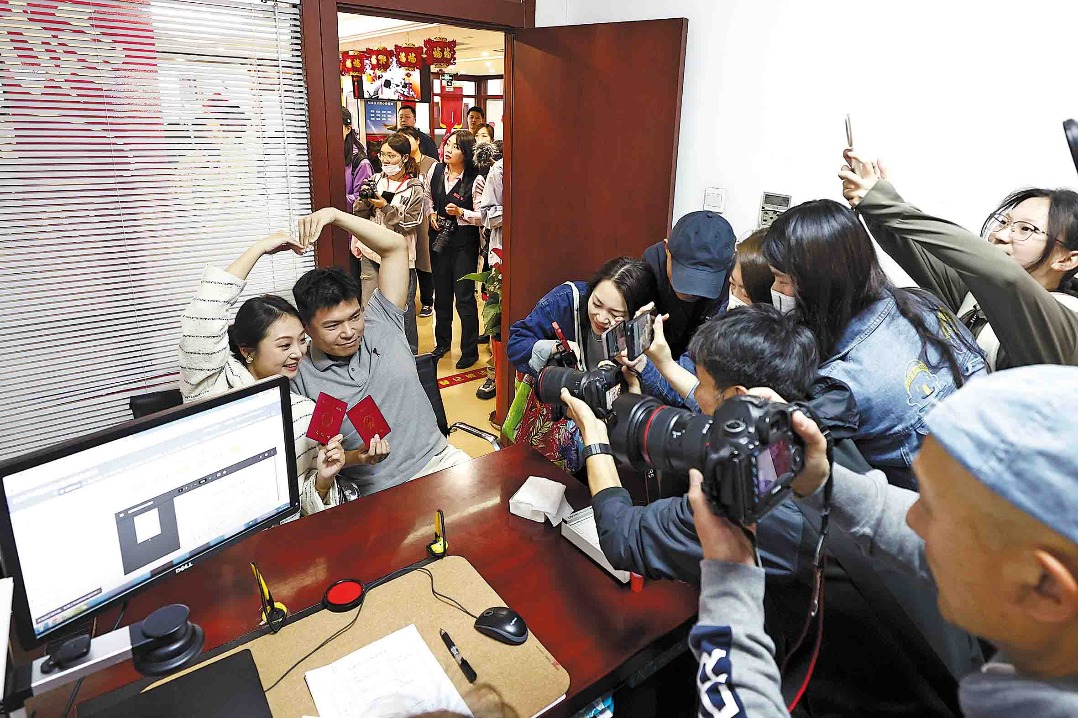Broader education urged for doctors
By Wang Xiaoyu | China Daily | Updated: 2023-12-19 09:59

A renowned Chinese medical researcher has suggested incorporating liberal studies in medical school curricula and reforming the appraisal standards for doctors in China.
Wang Chen, president of the Chinese Academy of Medical Sciences and Peking Union Medical College and a prominent respiratory diseases expert, said medical education should include far more than the biological sciences — deemed the conventional foundation of modern medicine — and incorporate multidisciplinary studies.
"Various disciplines in the fields of science and engineering, components of social sciences such as law, political science and economics, as well as the humanity studies of philosophy, art and literature should all be infused into medical education so as to foster Chinese medical professionals who have global perspectives and are future-oriented," he said during a recent interview in Beijing.
Peking Union Medical College launched a "4+4" medical program in 2018 that allows college students to take a nonmedical undergraduate major first and then pursue a doctoral degree in medicine in the last four years.
The college has also cooperated with universities that have great strengths in the fields of engineering, physics and mathematics — including Beihang University, Beijing Institute of Technology and the University of Science and Technology of China.
"We are aiming to nurture multidisciplinary medical talent capable of employing various approaches and methodologies to tackle issues," Wang said.
He said the sheer number of physicians and clinical resources in China is large, but the volume of advanced medical research and the number of top medical scientists pales in comparison with developed countries.
"Chinese researchers have published more high-quality papers in recent years and have made breakthroughs in some research topics as reflected in their publications in prominent medical journals," he said. "But their individual achievements have not represented a major, collective force internationally."
Taking their involvement in the medical journal The Lancet as an example, Wang said there have been only about 1,200 papers from China since the journal was founded two centuries ago.
"Most of these papers are based on disease characteristics and population characteristics of China, while we have contributed less regarding challenges facing humankind," he said.
In addition, Wang said that a mere 3 percent of hospitals in China have been involved in clinical trials of new drugs, suggesting a lack of research capacity at medical institutions.
"I believe all doctors can get involved in medical research," he said. "Even rural doctors are able to make observations of patients across a village and come up with some epidemiological findings."
However, doctors dedicating their time to carrying out medical research are sometimes faulted for overlooking their duties in caring for patients.
To tackle the issue, Wang said it is necessary to develop a more scientific and clearer career path for physicians.
"The common practice globally is to allow physicians to choose to focus on either scientific research or clinical practice, or the third way of balancing two aspects simultaneously," he said. "Each choice will send them into a different career trajectory."
However, in China, Wang said that all doctors — regardless of whether their focus is research or clinical — are evaluated under one uniform system of academic ranking, resulting in confusion and controversy.
"I suggest establishing two academic appraisal mechanisms for doctors — one for clinical practice and the other for academic research," he said. "This approach would enable doctors to devise their career paths based on their personal interests and strengths."
























